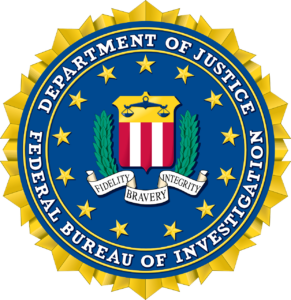Is the FBI Using “Legacy Tokens” to Shield Mental Health Records & Psychotropic Drug Cocktails of Mass Shooters From The Public?

2024/06/14
According to recently released information about the Covenant School shooter, Audrey Hale, psychiatric “treatment” was part of Hale’s life since early childhood. The Federal Bureau of Investigation (FBI) and the Metropolitan Nashville Police Department (MNPD) were aware of this important information within days of the shooting but have refused to share it with the public. Why?
Recall that on March 27 of last year, Hale deliberately traveled to the Covenant School with the sole purpose of taking lives. The mentally ill shooter succeeded in taking the lives of three children and three adult staff.
More than a year has passed since the shooting and, finally, information about Hale and her mental health history is being made public, including information about the cocktail of prescription drugs Hale had been prescribed.
According to the June 12 Tennessee Star article, police confiscated from Hale’s parent’s home prescription bottles that bear Hale’s name and the name of a psychiatric nurse practitioner. There also was one medication apparently prescribed by a Nashville Psychiatrist, which makes sense given earlier reports that Hale had been a patient at the Vanderbilt University Medical Center for most of her life – twenty-two years to be exact – and had been under the care of both a therapist and psychiatrist.
So, what prescription psychiatric drugs had the shooter been taking prior to the murderous rampage?
Lexapro – a drug used to “treat” depression from the Selective Serotonin Reuptake Inhibitor (SSRI) family of Drugs. Possible side effects include, abnormal thinking, aggravated depression, aggression/aggressive reaction, aggravated restlessness, depersonalization, feeling unreal, hallucination, hypomania, paranoia, suicidal ideation/behavior, mania, acute psychosis, anger, delusion, mood swings, psychotic disorder, to name a few. Not recommended used with Buspirone.
Buspirone – an anxiety medication in a class called Anxiolytics to “treat” anxiety disorders. Possible side effects include, insomnia, anger, hostility, confusion, depression, dream disturbances, depersonalization, akathisia, fearfulness, hallucinations, suicidal ideation to name a few.
Hydroxyzine – used as a sedative to “treat” anxiety and tension. Possible side effects include aggression, agitation, confusion, depression, disorientation, hallucination, and insomnia to name a few.
Taking these prescriptions together can increase the risk of serious side effects and all three drugs are “recommended” to not be taken together. But it’s important to realize that the public still has not been provided any information about Hale’s mental health history such as what mental illness(es) had the shooter been diagnosed with? And this would include the entire patient history at Vanderbilt University Psychiatry Department along with the most recent diagnoses prior to the shooting. Given the leaked prescription information, it starts to make sense why law enforcement continues to withhold Hale’s mental health data.
This bombshell of suppressed evidence by the FBI and the Nashville Police Department (MNPD) is featured in the letter written to the Nashville Police Department (MNPD) by the FBI, explaining “Legacy Tokens” is the language used to describe information withheld from the public. This letter was obtained through an ongoing lawsuit between the Editor in Chief, Michael Patrick Leahy, and Star New Digital Media Inc., requesting the release of Hales writings, including those called a manifesto.
The FBI “Tokens” letter was not signed but came from the Critical Incident Response Group in Quantico, VA. According to the letter, the Behavioral Threat Assessment Center (BTAC) claims to take a national level, multi-agency, multi-disciplinary task force focused on the prevention of terrorism and targeted violence (mass shootings) and provide operational support & training. The Behavioral Analysis Unit was originally called the Behavioral Science Unit and was launched in 1972 as part of the National Center for the Analysis of Violent Crime.
With the long line of mass shootings, how is it possible that Hale’s psychiatric treatment seems to escape consideration by the Behavioral Health Unit. Given such a long mental health history, one cannot accept that law enforcement has not considered this as a possible motive for the shooting. Obviously, law enforcement was aware of who Hales treating psychiatrists were and certainly knew of the cocktail of psychotropic drugs the evening of the mass killings. So why is law enforcement bent on withholding this data? This isn’t the first mass shooting where psychiatric intervention and prescription mind-altering drugs were involved.
How many other mass shootings has the FBI used this “Legacy Token” approach to shield the treating psychiatrist and hide the psychiatric drugs in which the shooter was prescribe? In fact, the question is why have calls from the public for hearings on the link between psychiatric drugs known to cause violence, suicide, and mass shootings, been ignored by lawmakers?
Are the behavioral health “experts” working within the FBI and Police Departments there to conceal the psychiatric/pharmacological connection? Afterall, they are in the very same industry enjoying behavioral health contracts worth billions of dollars with the FBI and Military.
There is no better place to protect the mental health industry than within the FBI behavioral health unit that could deflect the connections between psychiatry, pharma, and these mass killings. The Justice Department and lawmakers must be held accountable for the “legacy token” approach to withholding the link between psychiatric drugs and mass shootings. This blatant conflict of interest is allowing these behavioral health contractors to override public safety and it must stop.

